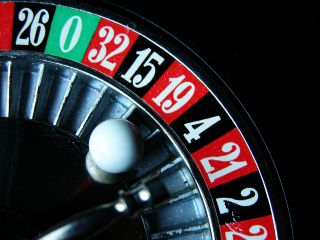Introversion
Introverts and Risk: Look, Think, Leap
Research tells us that extroverts are bigger risk takers than introverts. True?
Posted January 31, 2013

An introvert named David MacPhail who hangs out on my Facebook page questions the assertion that extroverts are bigger risk takers than introverts.
“As an introvert I do not take the typical risks that are associated with gambling and lotteries because my analytical mind knows the odds are against me," he wrote. "But I do not hesitate to take huge risks in situations where my assumptions could turn out wrong. Extroverts who are image and reputation conscious don't want to do anything that might tarnish their image.”
This interests me because I too am a risk taker and have also wondered about research into extroverts and risk. Like so many other things we “know” about introversion and extroversion, this seems to me to be a matter of definition.
In a quick and dirty review of literature on introverts/extroverts and risk, I found that most studies use gambling to represent risk taking. In those studies, extroverts were bigger risk takers than introverts. MacPhail suggested that extroverts are more drawn to gambling because, “…it feeds their ego to try to do things where they cannot possibly win because their ego says the outcome will be different for them.”
I don’t know about that. I’ve met plenty of introverts with plenty healthy egos. More likely, I think, it has to do with the level of extrinsic stimulation extroverts crave. Or maybe they’re just more impulsive, whereas by the time introverts think through whether or not they want to drop that coin in the slot, they’ve realized that there are better uses for their money.
But when it comes to other kinds of risk taking, are introverts really less inclined? I’ve always considered myself a risk taker, although not the kind of risk that involves large sums of money or jumping off high places or speeding around race tracks. (I dislike both heights and speed.)
I’m into calculated risk. The leaving-home-to move-1,500-miles-away-where-I-know-almost-no-one-and-have-no-job kind of risk. (I’ve been in Texas for decades now.) The leaving-a-full-time-job-to-strike-out-as-a-freelance-writer kind of risk. (A rocky road, but so far I’ve survived. And, in fact, had I stayed in the job, I probably would have been cut loose anyway because I worked for a newspaper, and we all know how that’s going. So you never really know for sure what’s risky and what’s wise.)
Introverts are perhaps less likely to be impulsive about risk than extroverts. We don’t do anything quickly and we like to think things through. But all the thinking and weighing and considering in the world guarantees nothing, so when we decide to act on something with an unpredictable outcome, that counts as risk in my book.
Are introverts more likely than extroverts to take those kinds of risks? Are we less fearful of that kind of failure? MacPhail’s theory, about extroverts and image suggests that maybe they are, but I’m not sure of that, either. All I’m saying is that like research into happiness and introverts/extroverts, research into risk depends on your definition.
**
My book, The Introvert's Way: Living a Quiet Life in a Noisy World, is available at real and virtual bookstores, and for Nook and Kindle.
Please join me on Facebook.


